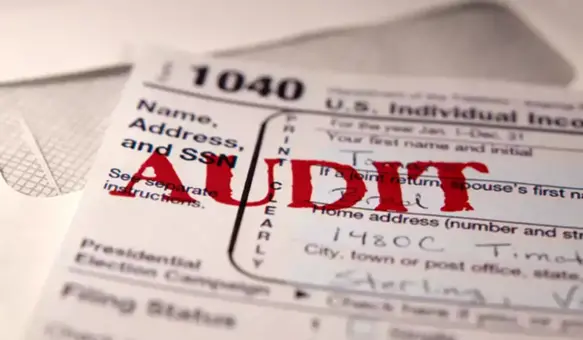Taxes in retirement: a CPA's guide to keeping Uncle Sam at bay
Retirement – it's the time to kick back, relax, and enjoy the fruits of your labor.
But, just when you thought you were done with your W-2s and quarterly tax payments, taxes in retirement pop up like that unexpected plot twist in your favorite mystery novel.
Fear not, though; with some planning, you can keep those tax bills in check and maybe even laugh a little along the way.
Understanding your retirement income sources
The usual suspects: income types
Your retirement income can come from a variety of sources, each with its unique tax implications.
Let's break them down:
-
401(k)/403(b) distributions: If you contributed pre-tax dollars, expect the IRS to treat these distributions like a birthday cake at the office — taxable for everyone involved.
These are taxed at your ordinary income rate, and don't forget about those required minimum distributions (RMDs) starting at age 73. - IRA distributions: Traditional IRAs follow the same rules as 401(k)s. However, if you planned ahead and contributed to a Roth IRA, you could enjoy tax-free withdrawals, assuming you've met the five-year rule.
- Social Security benefits: Up to 85% of your benefits might be taxable, depending on your combined income. If you thought you could escape taxes on these, think again!
- Pensions: These are typically funded with pre-tax dollars, meaning they're fully taxable. Just think of it as another slice of that taxable birthday cake.
- Annuities: The tax treatment depends on whether you used pre-tax or after-tax dollars. If it's the former, taxes will come knocking on your door.
- Capital gains and dividends: These are taxed at favorable long-term capital gains rates if held for over a year. Your income level determines whether you pay 0%, 15%, or 20%.
- Life insurance cash values: You can generally access these tax-free, but there are some caveats. Be mindful, as tapping into these values can reduce your death benefit.
Solve your tax question – ask professionals
Overwhelmed by taxes? With the right information, it gets easier.
Submit your question, and you’ll receive an answer from tax experts within a few business days. While we can’t provide detailed consultations without reviewing your documents, we’ll do our best to assist.
Crafting a tax-efficient withdrawal strategy
The art of timing: when to tap which account
A well-thought-out withdrawal strategy can make all the difference in how long your retirement savings last.
The general rule of thumb?
Start with taxable accounts, then move to tax-deferred, and save the tax-free accounts for last. But, of course, every rule has exceptions.
Taxable accounts first: Use these for initial withdrawals. This approach lets your tax-deferred accounts grow longer while benefiting from lower long-term capital gains taxes on investments held over a year.
Tax-deferred accounts: Consider these next. However, watch out for RMDs, which are mandatory and can bump you into a higher tax bracket if not carefully planned.
Tax-free accounts: Finally, draw from your Roth IRAs. This tax-free income can be especially useful if other withdrawals push you into a higher bracket or trigger additional taxes, like the Medicare surtax.
A balanced approach to withdrawals can help smooth out your tax obligations and keep more of your hard-earned money in your pocket.
Navigating state taxes in retirement
Not all states are created equal when it comes to taxing retirement income.
NOTE! Thirteen states, including Florida and Texas, don't tax any retirement income, which can significantly impact your financial planning.
On the other hand, some states do tax certain retirement income types but may exempt others, like Social Security benefits.
No income tax states: States like Alaska, Florida, and Texas don't tax any income. This means you can enjoy all your 401(k), IRA, and pension distributions without additional state taxes.
States with exemptions: For example, Pennsylvania exempts retirement income from taxation if you meet specific requirements, making it a retiree-friendly state.
Additional considerations and common pitfalls
Medicare surtax and other surprises
As if federal and state taxes weren't enough, high-income retirees may also face the 3.8% Medicare surtax on investment income.
This surtax applies to interest, dividends, capital gains, and rental income for those with adjusted gross incomes above $200,000 (single filers) or $250,000 (married filing jointly).
The impact of deductions and credits
Retirement often means fewer deductions, especially if you've paid off your mortgage. The Tax Cut and Jobs Act has also limited many deductions.
However, if you're itemizing, remember that state and local taxes are capped at $10,000.
Additionally, medical expenses exceeding 7.5% of your income can still be deducted.
Tax on retirement income abroad
Distributions from traditional 401(k) and IRA plans are taxed as ordinary income by the US, no matter where you live. These withdrawals do not qualify for the foreign earned income exclusion.
Some countries, like the UK, Spain, and Australia, have tax treaties with the US that may reduce or eliminate double taxation. However, countries such as Singapore and Brazil do not, meaning retirees could be taxed by both the US and their country of residence.
Planning for the unexpected
No one can predict the future, but planning for unexpected expenses, like medical costs, is crucial.
Health savings accounts (HSAs) offer a tax-advantaged way to save for these expenses.
Contributions are tax-deductible, grow tax-free, and withdrawals for qualified medical expenses are also tax-free.
Taxes are complicated
Get peace of mind with TFX
The bottom line: prepare, plan, and prosper
Taxes in retirement can be complex, but they don't have to be overwhelming.
By understanding your income sources, crafting a smart withdrawal strategy, and keeping an eye on state and federal tax laws, you can minimize your tax burden and maximize your enjoyment of retirement.



